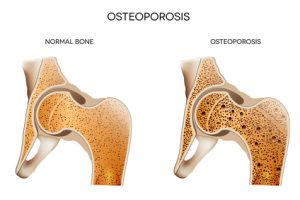Is Xylitol a health benefit?
In studies, Xylitol has been shown to eradicate gram-positive bacteria by not allowing it to adhere to the mucous membranes inside the nasal passages. It is also widely used for treating yeast and for its ability to break up biofilms, while not killing off beneficial, pathogen-fighting bacteria. Additionally,
Xylitol has also been shown as a positive adjunct therapy for treating the flu. (Note: Xylitol is classified as a food, not a drug, so no claims can be made on its health benefits in products.)
There are lots of scientific studies showing the benefits of this product.

 Designed by Dr. Fuhrman specifically for healthy cholesterol levels and to meet the needs of his patients who desire effective cholesterol lowering without toxic drugs and the side effects that go along with them.
Designed by Dr. Fuhrman specifically for healthy cholesterol levels and to meet the needs of his patients who desire effective cholesterol lowering without toxic drugs and the side effects that go along with them. Formulated by Joel Fuhrman, M.D.
Formulated by Joel Fuhrman, M.D. A formula created by
A formula created by  is a natural, homeopathic sleep support designed to help you fall asleep more easily and return to sleep if you wake up too early.
is a natural, homeopathic sleep support designed to help you fall asleep more easily and return to sleep if you wake up too early. Adrenal Boost gland supplement that offers a blend of botanicals, adrenal concentrate, and micronutrients to support the adrenal glands, as well as the body’s ability to respond to and counteract the negative effects of stress.
Adrenal Boost gland supplement that offers a blend of botanicals, adrenal concentrate, and micronutrients to support the adrenal glands, as well as the body’s ability to respond to and counteract the negative effects of stress. Metabolism plays a crucial role in overall health, and certain symptoms, such as hypertension, can signal an underlying metabolic issue known as Metabolic Syndrome.
Metabolism plays a crucial role in overall health, and certain symptoms, such as hypertension, can signal an underlying metabolic issue known as Metabolic Syndrome. Insulin resistance often leads to pre-diabetes and often shows up as part of Metabolic Syndrome. You can have one without officially having the others, but they often show up together.
Insulin resistance often leads to pre-diabetes and often shows up as part of Metabolic Syndrome. You can have one without officially having the others, but they often show up together. Candida Rid has the best all-in-one ingredient list for a candida/fungal overgrowth. It is a dietary supplement to get rid of Candida Infection.
Candida Rid has the best all-in-one ingredient list for a candida/fungal overgrowth. It is a dietary supplement to get rid of Candida Infection. Omega 3 supplementation with DHA+EPA Purity is designed for individuals who avoid fish—whether for ethical, dietary, or environmental reasons—yet still want the proven benefits of long-chain omega-3s.
Omega 3 supplementation with DHA+EPA Purity is designed for individuals who avoid fish—whether for ethical, dietary, or environmental reasons—yet still want the proven benefits of long-chain omega-3s.